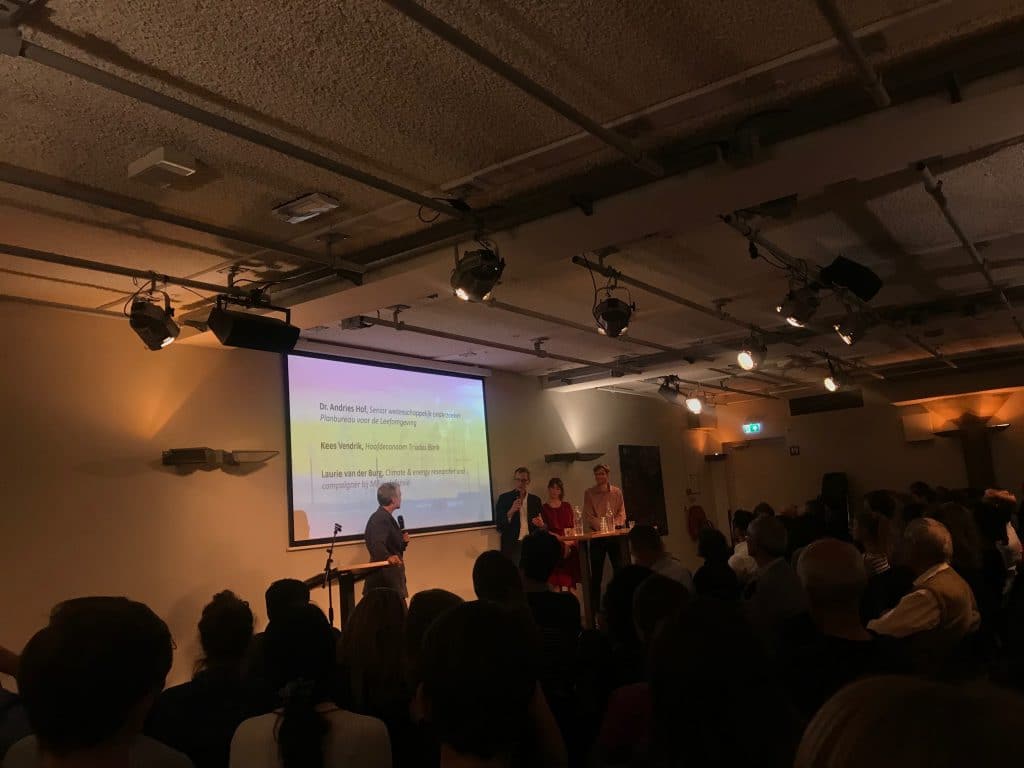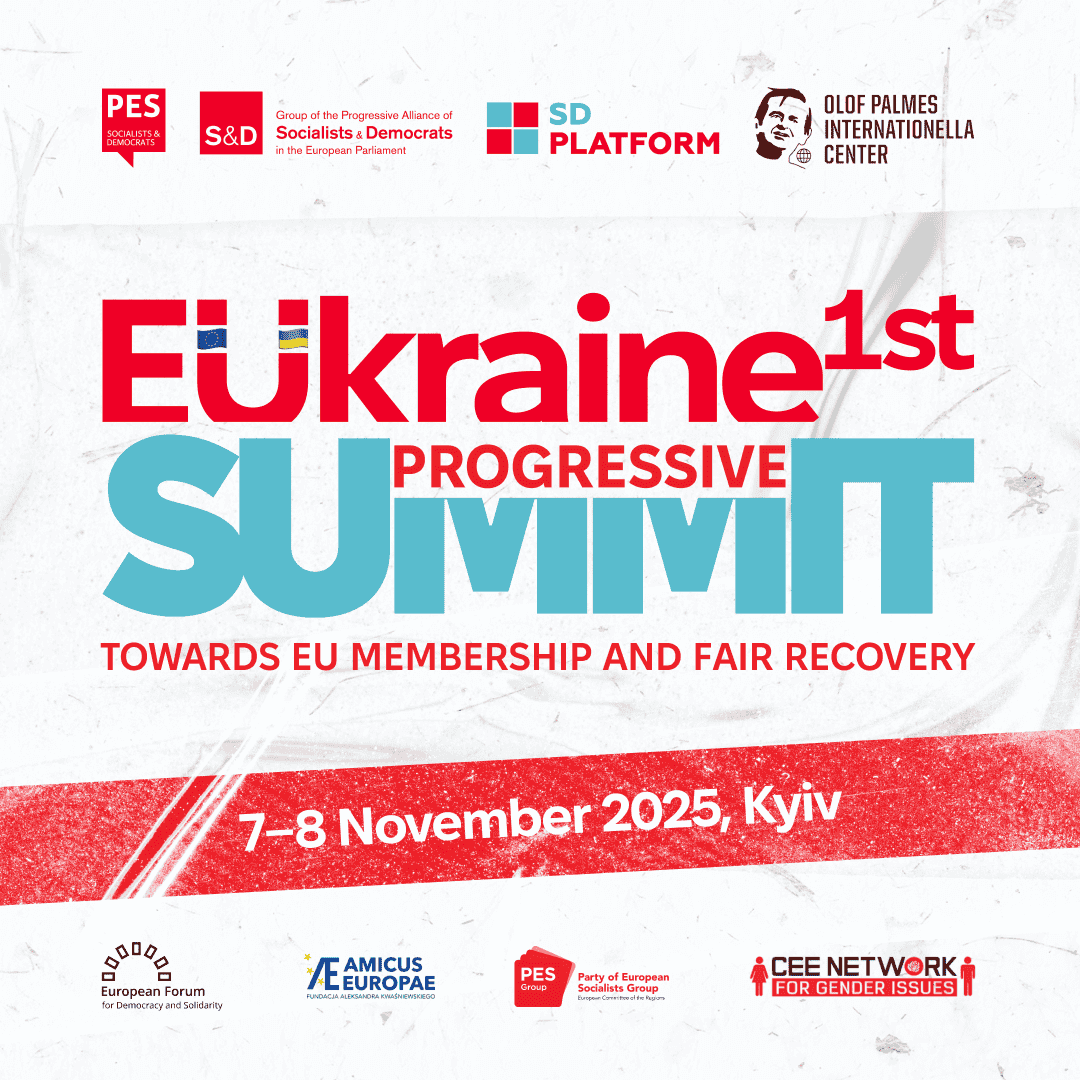The climate issue is a hot topic and one of the most important issues of our time. The effects of climate change are felt everywhere and have very real consequences for human life. For us, but especially also for people in developing countries. That is why the search for a solution should not only focus on measures in the Netherlands itself, but should also be linked to Dutch foreign policy. A first step in this direction was taken on Friday 20 September during the event 'Climate Table International' organised by Vice Versa in association with FMO, Solidaridad and the FGG alliance.
During the 'Climate Table International', the diverse guests looked at the Netherlands' domestic and foreign climate policies from different perspectives. Preconceived questions such as: 'What are currently untapped opportunities to reduce the Dutch climate footprint through foreign policy? And what tools does the Dutch state have at its disposal for this?', were not directly answered. The evening did not provide clear solutions, but created a dialogue between different actors.
International climate table is not a forgotten table
What became particularly clear is that the international climate table is not actually a forgotten table. Indeed, Kees Vendrik, chief economist at Triodos Bank, explained that when the Paris Agreement was concluded, that choice was deliberate. The Paris Agreement is an agreement between sovereign states, but change must take place on home soil. So it is not a forgotten table, but a political choice made by our cabinet. This does not diminish the need to reflect on foreign policy and the impact of our policies on other countries.
In recent years, the Netherlands has been mainly focused on closing coal-fired power plants on its own soil and thus shifting CO2 emissions. CO2 emissions are moved because the Netherlands will import coal power from Poland or Germany, for example. Vendrik believes we should stop outsourcing CO2 emissions. Despite the fact that investing abroad is more cost-effective, it should be a question of and-and. According to Andries Hof, senior scientific researcher at the Netherlands Environmental Assessment Agency, there should be a diverse mix of solutions and we should not lump developing countries all together. Local solutions are by far the most efficient.
There is enough money and yet a 'money-gap'
These local solutions can happen because there is plenty of money, according to Jorim Schraven, FMO's director of Impact and Environmental Social and Governance. He explains that FMO invests €1 billion in mitigation and adaptation. He cites the Dutch Fund for Climate and Development, which focuses mainly on adaptation, which is what developing countries need most: "We face two problems: adaptation and mitigation. What is important is how you distribute this pot of money". Cross-border investment is needed. Heske Verburg, director Solidaridad Europe, does clarify that there is a 'money-gap' as 70% of people in Africa work in agriculture and only 3% of all loans go to agriculture.
Besides there being a 'money-gap', there are also some mistakes in the policies of Sigrid Kaag, Minister for Foreign Trade and Development. Both Laurie van der Burg, climate and energy researcher and campaigner at Milieudefensie, and Joyeeta Gupta, professor of Environment and Development at UVA, cite her policies several times. Although Kaag considers policy coherence important, van der burg and Gupta say there are gaps in it. For instance, Western institutions in developing countries still invest in fossil fuels while this is prohibited in the Netherlands. Foreign and domestic policies should be consistent, especially since developing countries contribute the least to pollution and have the least resources and capacities to do something about it.
Cooperation and consultation with developing countries is necessary
Developing countries are thus hit hardest by climate change. Schraven explains that there is enough money and that this is not the problem. What is missing is good communication, cooperation and consultation with developing countries. Van der Burg also stresses the need for better communication with developing countries. Ghana, for example, wants to invest in sustainability and become greener, but falls short financially and wants clarity on what the Netherlands can do for them.
Hof adds that developing countries are waiting for us; they can make some changes themselves, but larger adjustments require funding. Verburg adds that farmers should be at the centre of this debate. The international debate cannot be viewed without the participation of those who bear the burden. Verburg also explains that it is actually a humanitarian issue. If the price of cocoa falls, for example, farmers earn less. This causes them to cut down more forests so that they can have sufficient income again. However, this in turn has a major impact on the climate.
Climate does not stop at Dutch borders
It was an interactive evening, without concrete solutions, but with new perspectives and ideas that everyone can take up in one way or another. The effects of climate change are being felt worldwide, but developing countries are being hit hardest and this while their contribution has always been very small.
Established funds such as the Green Climate Fund seem like a nice initiative, but can such a fund have sufficient impact? And does it match the real needs of developing countries? This question will be central to the research we as FMS will conduct next year. Keep following us to stay informed about this.




